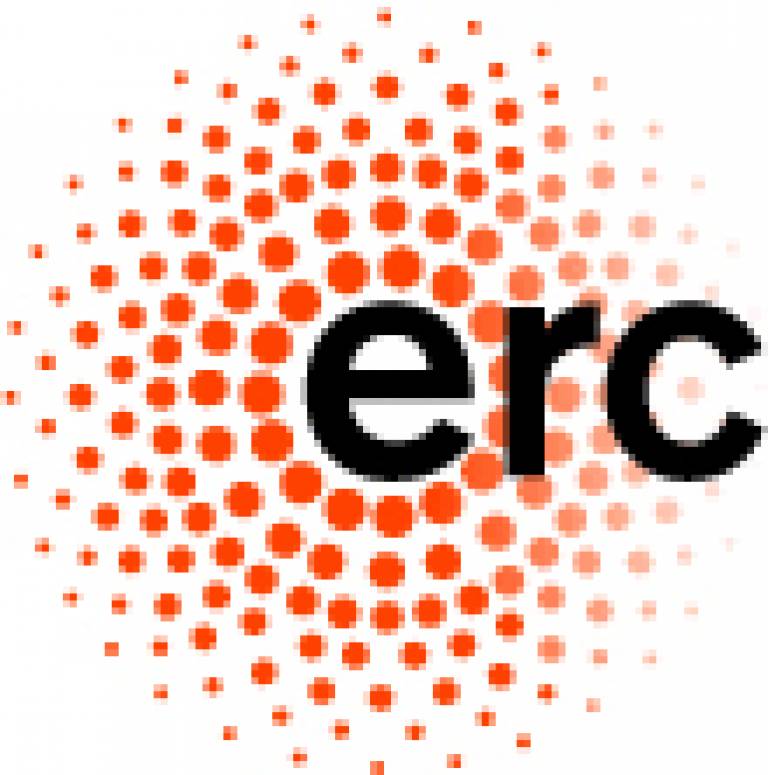Seven European Research Council Advanced Grants for UCL
22 December 2009
Seven UCL researchers have been awarded Advanced Grants worth in excess of £13 million from the European Research Council.

Michael Browne, Head of European Research and Development at UCL said: "These grants are designed to allow exceptional established research leaders in any field of science, engineering and scholarship to pursue risk-taking, interdisciplinary and pioneering research. The Advanced Grant scheme, in particular, is highly competitive (with an overall success rate of seven percent) and highly prestigious."
The winning UCL proposals are described below.
- MECHANICITY (Morphology, Energy and Climate cHANge In the CITY) led by Professor Michael Batty (UCL Centre for Advanced Spatial Analysis).
This project will develop new methods of modelling energy in cities using ideas from allometry and energetics which will be related to urban form, economic structure and the cost of location, using methods pioneered by Professor Batty in social physics. It is hoped that the theories and models developed will provide a new foundation for examining the impact of climate change on cities.
- CULTUREWORLD: The evolution of cultural norms in real-world settings, led by Professor Ruth Mace (UCL Anthropology).
Some theoretical models in evolutionary anthropology potentially explain how social learning can generate behaviours that Darwinian selection does not generally predict, such as altruism towards non-relatives or limiting your reproductive rate. The projects proposed are designed to help provide empirical evidence to test these models in relevant ecological contexts, concerning behaviour that actually influences reproductive success.
- IHKDC - Exiting Long Run Poverty: The determinants of asset accumulation in developing countries, led by Professor Orazio Attanasio (UCL Economics).
This project will study the determinants of the accumulation of productive assets among poor households in developing countries with a special focus on human capital. Preferences, beliefs, information, expectations and available resources will be studied to determine how these affect investment decisions, how these decisions are transformed in assets and how these assets can affect the material well-being of poor households.
- EUROEVOL: Cultural Evolution of Neolithic Europe, led by Professor Stephen Shennan (UCL Archaeology).
The last 25 years have seen the rapid growth of the interdisciplinary field of the evolutionary study of human culture, which has produced novel ways of understanding human cultural and socio-economic behaviour. This project will be the first substantive attempt to bring the different sub-fields of cultural evolutionary theory and method together in an integrated fashion and to apply them to large-scale case studies in history or prehistory to address specific questions concerning the links between demographic, economic, social and cultural patterns and processes. It aims to provide the basis for a new account of the role of farming in transforming early European societies between 6000 and 2000 BCE.
- DENDRITE: Cellular and circuit determinants of dendritic computation, led by Professor Michael Hausser (Wolfson Institute for Biomedical Research).
The project aims to identify the fundamental unit of computation in the brain. Answering this question is crucial not only for understanding how the brain works, but also if accurate models of brain function are to be built. The project will focuse on the contribution of dendrites (which receive the vast majority of the synaptic input to the neuron) and will use a novel combination of electrophysiological, anatomical, imaging, molecular, and modelling approaches to probe how dendrites solve computational problems relevant to behaviour.
- BRAINPOWER: Brain energy supply and the consequences of its failure, led by Professor David Attwell (UCL Neuroscience, Physiology and Pharmacology).
The project will study how the brain uses and regulates its energy supply.
- GEMELLI: Gene networks controlling embryonic polarity, regulation and twinning, led by Professor Claudio Stern (UCL Cell and Developmental Biology).
Using a multidisciplinary approach involving comparative genomics, bioinformatics, experimental embryology and genetics, the project will uncover the gene regulatory network responsible for how the embryo determines its head-tail polarity and the mecahnisms that normally prevent the formation of conjoined ('Siamese') and monozygotic (identical) twins in humans and higher vertebrates.
To find out more about the UCL European Research and Development Office, follow the link at the bottom of this article.
 Close
Close

